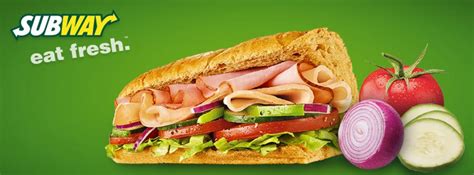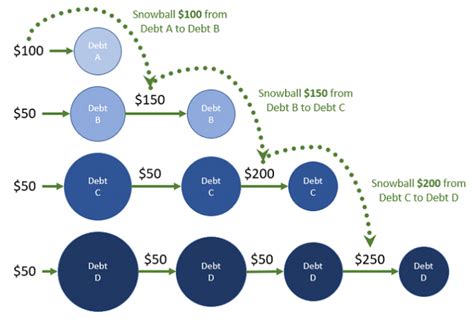
Subway’s parent company, Roark Capital, is set to acquire Church’s Chicken, adding the fried chicken chain to its extensive portfolio of restaurant brands. The acquisition, announced recently, marks a significant expansion for Roark Capital, known for its investments in the food and beverage industry.
Roark Capital, which acquired Subway last year, will be adding Church’s Texas Chicken to its portfolio, according to an announcement, signaling a strategic move to diversify its holdings in the fast-food sector. The financial terms of the deal have not been disclosed. “Church’s Chicken is an important brand with a rich heritage, a distinctive menu, and a loyal base of customers,” said Paul Brown, CEO of Inspire Brands in March 2024 when it was reported that Inspire was looking to sell the chain.
The acquisition of Church’s Chicken underscores Roark Capital’s continued confidence in the restaurant industry, despite recent economic headwinds and changing consumer preferences. It remains to be seen how Roark Capital plans to integrate Church’s Chicken into its existing portfolio and leverage its resources to enhance the brand’s performance.
Roark Capital’s Acquisition Strategy
Roark Capital’s acquisition of Church’s Chicken aligns with its broader strategy of investing in established restaurant brands with growth potential. The private equity firm has a proven track record of acquiring and revitalizing brands in the food and beverage sector, leveraging its operational expertise and financial resources to drive growth and profitability.
By adding Church’s Chicken to its portfolio, Roark Capital gains access to a well-established brand with a loyal customer base and a strong presence in the fried chicken segment. This acquisition complements Roark Capital’s existing investments in other restaurant chains, creating opportunities for synergies and cross-promotion.
Roark Capital’s approach typically involves identifying brands with strong fundamentals but untapped potential. The firm then works closely with management teams to implement operational improvements, enhance marketing strategies, and expand the brand’s reach. This hands-on approach has proven successful in revitalizing numerous restaurant chains and delivering attractive returns for investors.
Church’s Chicken: A Brand Overview
Founded in San Antonio, Texas, in 1952, Church’s Chicken has a long and storied history in the fast-food industry. The chain is known for its signature fried chicken, biscuits, and other Southern-inspired menu items. Over the years, Church’s Chicken has expanded its footprint to more than 1,500 locations in over 20 countries.
Despite its established presence, Church’s Chicken has faced challenges in recent years, including increased competition from other fast-food chains and evolving consumer preferences. The brand has also struggled with operational issues and inconsistent performance across its franchise network.
However, Church’s Chicken remains a recognizable brand with a loyal customer base, particularly in the Southern United States. The chain’s focus on quality ingredients and Southern hospitality has helped it maintain a distinct identity in the crowded fast-food market.
The Future of Church’s Chicken Under Roark Capital
The acquisition by Roark Capital presents both opportunities and challenges for Church’s Chicken. On the one hand, Roark Capital’s expertise and resources could help revitalize the brand and improve its operational performance. On the other hand, Church’s Chicken will need to adapt to changing consumer preferences and compete effectively in a highly competitive market.
One potential area of focus for Roark Capital could be menu innovation. While Church’s Chicken is known for its classic fried chicken and biscuits, the brand could benefit from introducing new menu items that appeal to a broader range of customers. This could include healthier options, vegetarian dishes, or international flavors.
Another area of focus could be improving the customer experience. Roark Capital could invest in upgrading Church’s Chicken’s restaurants, enhancing its online ordering platform, and improving its customer service. These improvements could help attract new customers and retain existing ones.
Industry Analysis and Context
The acquisition of Church’s Chicken occurs within a dynamic and competitive fast-food industry landscape. Several key trends are shaping the industry, including:
- Changing Consumer Preferences: Consumers are increasingly seeking healthier options, convenience, and value in their fast-food choices. This trend is driving demand for healthier menu items, mobile ordering, and loyalty programs.
- Increased Competition: The fast-food market is highly competitive, with numerous chains vying for customers’ attention. This competition is driving innovation and marketing spend, as chains seek to differentiate themselves from their rivals.
- Rise of Delivery: Delivery services like Uber Eats and DoorDash have transformed the fast-food industry, making it easier for customers to order and receive food from their favorite restaurants. This trend has created new opportunities for growth, but it has also increased the pressure on restaurants to adapt their operations.
- Labor Costs and Automation: Rising labor costs are a significant concern for fast-food chains. As a result, many chains are investing in automation technologies, such as self-ordering kiosks and robotic kitchen equipment, to reduce their reliance on human labor.
Financial Implications
The financial terms of Roark Capital’s acquisition of Church’s Chicken have not been disclosed, but the deal is likely to be significant. Roark Capital has a history of making large investments in the restaurant industry, and the acquisition of Church’s Chicken is consistent with this strategy.
The acquisition could have several financial implications for Church’s Chicken. First, Roark Capital’s financial resources could enable the chain to invest in new initiatives, such as menu innovation, restaurant upgrades, and marketing campaigns. Second, Roark Capital’s operational expertise could help Church’s Chicken improve its profitability and efficiency.
However, the acquisition could also lead to changes in Church’s Chicken’s capital structure. Roark Capital may choose to refinance Church’s Chicken’s debt or make other changes to its financial management.
Potential Challenges and Risks
While the acquisition of Church’s Chicken presents opportunities for growth, it also carries potential challenges and risks. These include:
- Integration Challenges: Integrating Church’s Chicken into Roark Capital’s existing portfolio could be complex and time-consuming. Roark Capital will need to ensure that Church’s Chicken’s operations are aligned with its overall strategy and that the two companies’ cultures are compatible.
- Market Competition: The fast-food market is highly competitive, and Church’s Chicken will need to continue to differentiate itself from its rivals. Roark Capital will need to invest in marketing and innovation to maintain Church’s Chicken’s market share.
- Economic Conditions: Economic downturns could negatively impact Church’s Chicken’s sales and profitability. Roark Capital will need to manage the company’s finances prudently to weather any economic storms.
- Changing Consumer Preferences: Consumer preferences are constantly evolving, and Church’s Chicken will need to adapt to stay relevant. Roark Capital will need to monitor consumer trends and adjust Church’s Chicken’s menu and marketing accordingly.
The Role of Inspire Brands
Prior to the Roark Capital acquisition, Church’s Chicken was owned by Inspire Brands, a multi-brand restaurant company that also owns Arby’s, Baskin-Robbins, Buffalo Wild Wings, Dunkin’, Jimmy John’s, and Sonic. Inspire Brands acquired Church’s Chicken in 2021 as part of a larger portfolio diversification strategy.
However, in March 2024, reports emerged that Inspire Brands was looking to sell Church’s Chicken. The decision to sell Church’s Chicken may have been driven by a desire to focus on Inspire Brands’ core brands or to raise capital for other investments.
“Church’s Chicken is an important brand with a rich heritage, a distinctive menu, and a loyal base of customers,” said Paul Brown, CEO of Inspire Brands in March 2024. “We are confident that Roark Capital will be an excellent steward of the Church’s Chicken brand and will continue to grow the business.”
Roark Capital’s Portfolio
Roark Capital is a private equity firm that specializes in investing in franchise and multi-unit businesses. The firm has a diverse portfolio of investments in the restaurant, retail, and service industries.
Some of Roark Capital’s other restaurant investments include:
- Arby’s
- Auntie Anne’s
- Buffalo Wild Wings
- Carl’s Jr.
- Cinnabon
- Hardee’s
- Jimmy John’s
- Moe’s Southwest Grill
- Schlotzsky’s
- Sonic Drive-In
- Subway
Roark Capital’s extensive portfolio of restaurant brands gives it significant scale and expertise in the fast-food industry. The firm can leverage its resources to help Church’s Chicken improve its operations, marketing, and menu.
Impact on Franchisees
The acquisition of Church’s Chicken by Roark Capital could have a significant impact on the chain’s franchisees. Franchisees may be concerned about potential changes to the franchise agreement, fees, or operating procedures.
Roark Capital will likely work closely with Church’s Chicken’s franchisees to address their concerns and ensure a smooth transition. The firm may also offer franchisees new opportunities for growth and investment.
It is important for Church’s Chicken’s franchisees to stay informed about the acquisition and to communicate their concerns to Roark Capital. Franchisee associations can play a key role in representing the interests of franchisees and ensuring that their voices are heard.
The Role of Leadership
The leadership team at Church’s Chicken will play a critical role in the success of the acquisition. Roark Capital will need to work closely with Church’s Chicken’s management team to develop a clear strategy for the brand and to execute that strategy effectively.
It is possible that Roark Capital will make changes to Church’s Chicken’s leadership team following the acquisition. However, Roark Capital will likely want to retain experienced executives who understand the Church’s Chicken brand and its operations.
The leadership team will need to be able to navigate the challenges of integrating Church’s Chicken into Roark Capital’s portfolio and to adapt to changing consumer preferences.
Regulatory Considerations
The acquisition of Church’s Chicken by Roark Capital may be subject to regulatory review by antitrust authorities. Antitrust authorities will examine the deal to ensure that it does not violate antitrust laws or harm competition in the fast-food market.
It is possible that antitrust authorities will require Roark Capital to divest some of its restaurant holdings to address any potential competitive concerns. However, it is more likely that the acquisition will be approved without any major conditions.
Conclusion
Roark Capital’s acquisition of Church’s Chicken represents a significant development in the fast-food industry. The acquisition underscores Roark Capital’s continued confidence in the restaurant sector and its strategy of investing in established brands with growth potential.
The acquisition presents both opportunities and challenges for Church’s Chicken. Roark Capital’s expertise and resources could help revitalize the brand and improve its operational performance. However, Church’s Chicken will need to adapt to changing consumer preferences and compete effectively in a highly competitive market.
The acquisition is likely to have a significant impact on Church’s Chicken’s franchisees, employees, and customers. It remains to be seen how Roark Capital will integrate Church’s Chicken into its existing portfolio and leverage its resources to enhance the brand’s performance.
FAQ: Roark Capital’s Acquisition of Church’s Chicken
- Why did Roark Capital acquire Church’s Chicken?
Roark Capital acquired Church’s Chicken as part of its strategy to invest in established restaurant brands with growth potential. The firm sees Church’s Chicken as a well-established brand with a loyal customer base and a strong presence in the fried chicken segment. Roark Capital believes that its expertise and resources can help revitalize the brand and improve its operational performance. Roark Capital also recently acquired Subway and has an extensive portfolio of established brands that can be leveraged across all its brands.
- What are the potential benefits of the acquisition for Church’s Chicken?
The acquisition could bring several benefits to Church’s Chicken, including:
- Financial resources: Roark Capital’s financial resources could enable Church’s Chicken to invest in new initiatives, such as menu innovation, restaurant upgrades, and marketing campaigns.
- Operational expertise: Roark Capital’s operational expertise could help Church’s Chicken improve its profitability and efficiency.
- Synergies with other brands: Roark Capital’s portfolio of restaurant brands creates opportunities for synergies and cross-promotion.
- How might this acquisition affect Church’s Chicken franchisees?
The acquisition could lead to changes in the franchise agreement, fees, or operating procedures. Roark Capital will likely work closely with Church’s Chicken’s franchisees to address their concerns and ensure a smooth transition. Franchisees may also be offered new opportunities for growth and investment. It is important for franchisees to stay informed and communicate their concerns.
- Will there be changes to the Church’s Chicken menu or brand?
It is possible that Roark Capital will make changes to the Church’s Chicken menu or brand. The firm may introduce new menu items, update the restaurant design, or launch new marketing campaigns. Roark Capital will likely want to retain Church’s Chicken’s core identity and appeal to its loyal customer base, while also attracting new customers. However, menu innovation may also occur under the new ownership.
- What does this acquisition mean for the fast-food industry?
The acquisition signals continued investment and consolidation in the fast-food industry. Private equity firms like Roark Capital are increasingly interested in acquiring established restaurant brands, as they see opportunities to improve their performance and generate attractive returns. The acquisition also highlights the importance of adapting to changing consumer preferences and competing effectively in a highly competitive market.









